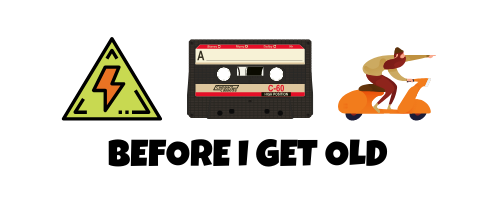The fourth time I gave up smoking was by far the easiest. That makes it sound like a bigger deal than it was. I was a late starter to tobacco aged 21 and it was all over by 25. What made the difference was that on the final time I actually wanted to give up the ciggies, before that, I just sort-of felt that I should.
Implementing change is one of the most difficult things we do. And almost always it’s because, deep down, we either prefer what we have to what we might gain, or we don’t have the right strategies to do it. And much of this comes from our internal language of change not quite being tuned-in.
A few years back I was dozing in the middle of one of those presentations that form part of a management training course. I sort-of stirred at one point to realise that the speaker was talking a lot of sense. His subject was ‘the language of change’ and what he said was fascinating.
If you want to know if someone is serious about change, listen to how they describe it.
‘The diet starts tomorrow’. We’ve all said it and most of us probably meant it. But it rarely happens (or lasts). What if we said, ‘The diet starts right now’ or ‘The diet started 20 minutes ago’? This tiny change of emphasis is really important because, by saying it, you’ve already hit your first milestone. Giving ourselves that ‘one last night’ on the booze or ‘I’ll just finish this pack’ of cigarettes before we start the new life tomorrow is an admission that we don’t actually want to make the change.
‘I need to change my life’. Well done. It’s is a statement we all recognise, but what do those words mean? Acknowledging the need is not the same as committing to do something about it. ‘I will change my life’ sounds better, but the diet still starts tomorrow. How about. ‘I am changing my life starting now’?
So, next time you give up booze or ciggies or Maltesers (still the only vice that’s defeated my willpower), how about starting it fifteen minutes ago? And next time you think about that exciting and necessary life change, give yourself a deadline and make it the shortest possible one you can practically achieve.
You’ll be pleased to hear that the hard part is over. From now on, it all gets easier.
The next step is to break down the big challenge into a series of smaller tasks you need to do to get yourself to the first deadline. What are you going to do to replace the thing you’re trying to change. That might be having a small piece of fruit every time you would have had a cigarette. Or a glass of water instead of a coffee. Or going for a walk. Make some mini-deadlines and do the first one now.
The simple satisfaction of hitting that first marker, of starting your diet or doing some exercise right now, can give you the instant boost you need to maybe, just make it happen.
Having a plan with dates and realistic expectations makes change inevitable. Real change takes time because we are altering long-held habits and routines. Sticking to a big change for a week is good, a month even better. But making several small sets of changes that maybe have less initial impact but last for longer is much more impressive and likely to make a bigger difference.
‘I am starting my diet right now and am looking forward to seeing the benefits in three months-time,’ might not seem quite as dramatic and emotional, but it’s a lot more realistic, and as a well thought-out intent will almost certainly bring you more success.
Having a goal of ‘losing a stone before summer’ is great, but unlikely to be effective on its own. Breaking it down into small chunks about how you’ll experiment with fruit or vegetables to replace sugary snacks, where in your day you can fit 90-second bursts of exercise, how you are going to reduce all your portion sizes by ten per cent etc. takes longer but makes everything much more likely to happen.
Now I’ve gone on about smoking and diets a lot. Sorry, it’s just an example most of us can relate to either ourselves or from our families. Substitute diet for ‘change my approach to work’, ‘get that new job’ or ‘start my own business’ and life can get interesting. Working out what the small changes are that will get you get there is the exciting bit, because almost all of them are easily achievable.
And, if anyone has a successful tactic for quitting the Maltesers, please let me know.










